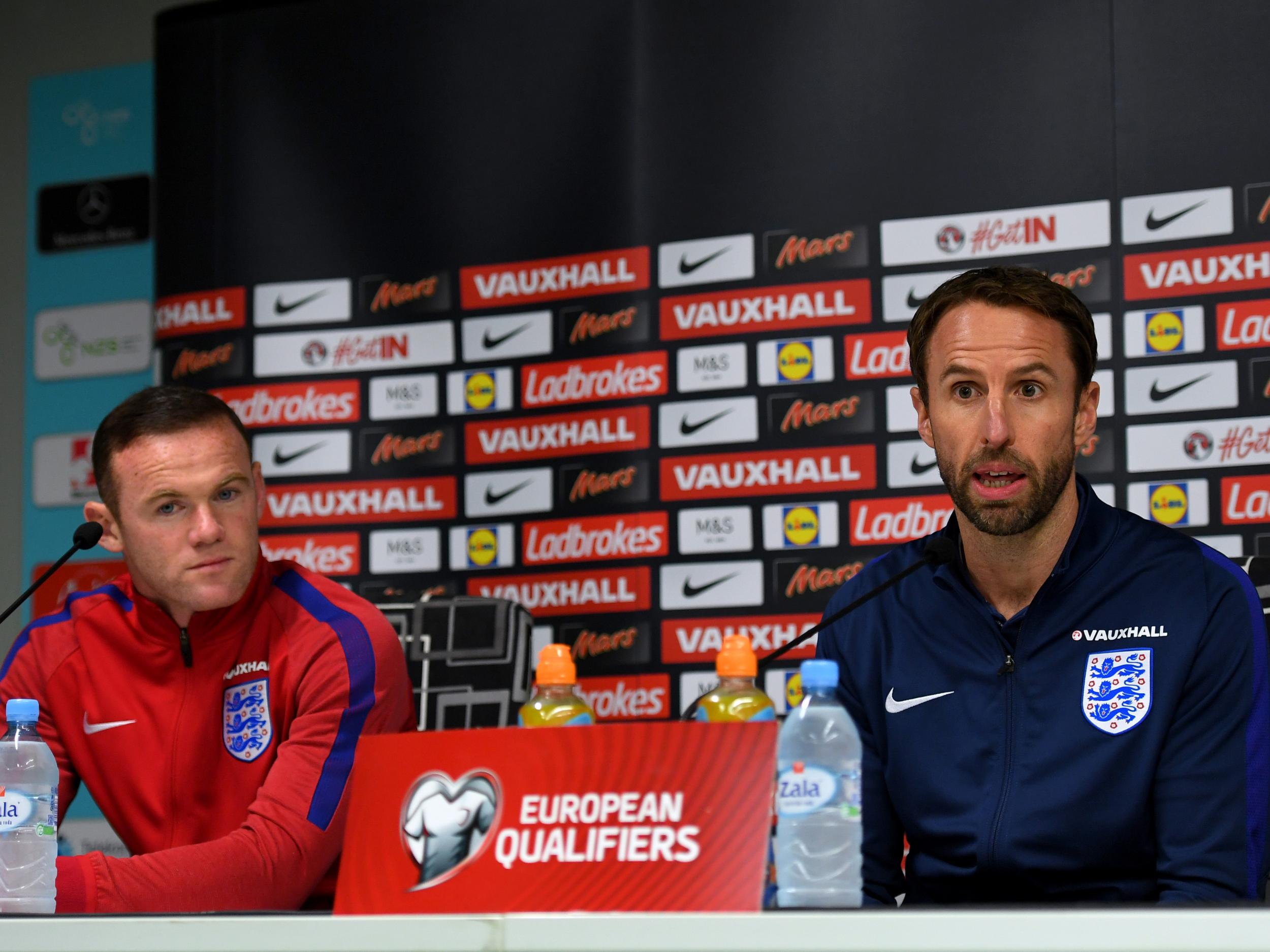Gareth Southgate avoids Wayne Rooney and Lukas Podolski comparisons as he shapes innovative England
The former Arsenal man received a gladiatorial ovation when he was substituted

Your support helps us to tell the story
From reproductive rights to climate change to Big Tech, The Independent is on the ground when the story is developing. Whether it's investigating the financials of Elon Musk's pro-Trump PAC or producing our latest documentary, 'The A Word', which shines a light on the American women fighting for reproductive rights, we know how important it is to parse out the facts from the messaging.
At such a critical moment in US history, we need reporters on the ground. Your donation allows us to keep sending journalists to speak to both sides of the story.
The Independent is trusted by Americans across the entire political spectrum. And unlike many other quality news outlets, we choose not to lock Americans out of our reporting and analysis with paywalls. We believe quality journalism should be available to everyone, paid for by those who can afford it.
Your support makes all the difference.Everywhere Gareth Southgate turned late on Wednesday night there were reminders of the adoration that comes with being a serial winner. The Lukas Podolski party was getting into full swing with a televised ‘This is Your Life’ style show from a nearby studio in the Westfalenstadion stadium and most of the German journalists, watching the live feed, were in stitches when the new permanent England manager sat down to talk.
When it was put to him that England’s greatest players have never been loved like this, he reflected that “it helps if you have won World Cups and European Championships doesn’t it? [And] you can’t always predict when the end is coming for people.”
But Southgate was firmly looking ahead, not back. There wasn’t the faintest flicker of a response when it was put to him that Wayne Rooney deserved a send-off like Podolski. “Is that the last question?” he replied, and did not answer.
The night had been about a new England: a group of players constantly looking for possession, equal to the intellectual challenge of finding the right pass and patiently waiting for the moment to thread it and attack, if necessary. “Believing in the way they play” to quote Southgate’s pre-match definition of a German trait he wanted to adopt.
It was a young side and the ego seemed to be subordinate to the collective in a way we have not often seen in England. Members of the so-called ‘golden generation’ might look at some of the seemingly more average individuals who made the world champions sweat for 45 minutes and think ‘we could do that.’ But they rarely ever did. This time we had Michael Keane – a real revelation against Germany – whose derives a real hunger from his mission to prove that Louis van Gaal’s Manchester United were wrong to sell him 18 months ago.
“I always thought I would make it at United,” Keane said. “A few changes in managers did not help and when I left I felt I had a point to prove. It made me work that bit harder.” Keane represented Ireland at both under-17 and under-19 levels but it was no contest when England called.
Southgate agreed that the experience of being an England player perhaps helps you to manage this team, though experience coaching the under-21s helps just as much. It equipped him with the knowledge that Keane could handle making his a debut in a prototype three-man defence.
Southgate said he’d decided on that system six weeks ago, having seen Germany “pin teams back” and determined that he “didn’t want to sit there and take pressure all night.” This took us a long way from the Roy Hodgson decision-making which was concocted on the hoof at times. Rooney in England’s central midfield was an idea not tested until the last warm-up game before Euro 2016.
There was something liberating about the gamble on a system which generated optimum possession for Adam Lallana and Dele Alli, operating more narrowly with wing backs outside of them. “It would be easy just to view [friendlies] as games that have to be won, and then you don’t risk, don’t try things and you don’t give people opportunities,” Southgate reflected. “Would we make all the changes we did in another scenario? In a game like that, that’s the purpose. If you don’t put lads in, you’ll never find out about them.”
An appetite was not evident everywhere. Manchester City’s Raheem Sterling and John Stones were deemed too tired to face Germany, though their club team-mate Leroy Sane managed well enough for Germany.
Arsenal supporters will wonder how on earth the Podolski they knew could end up departing the international stage a hero like this. For them, he simply wasn’t that good. That only goes to prove that the biggest contributions do not necessarily come from the best players.

Podolski said before leaving the stadium that he believed Rooney was very much entitled to a send-off just like his own. That will be the Rooney who could not find the time, in a two-week international break, to attend the new England manager’s introductory team talk on Monday. Southgate is wise not to look back.
Join our commenting forum
Join thought-provoking conversations, follow other Independent readers and see their replies
Comments